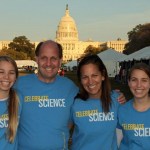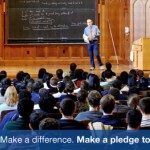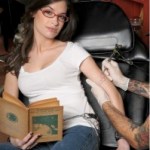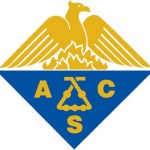Education
"Air guitar" has taken on almost cult status in some circles. How about "couch guitar"?
This video is a clever application of robots, engineering and music.
From the University of Pennsylvania:
Quadrotors designed and built at the University of Pennsylvania perform the James Bond Theme by playing various instruments including the keyboard, drums and maracas, a cymbal, and the debut of an adapted guitar built from a couch frame. The quadrotors play this "couch guitar" by flying over guitar strings stretched across a couch frame; plucking the strings with a stiff wire attached to the base of…
There is a joke expression about surgeons, "sometimes wrong, never in doubt." Depending on how you feel about surgeons I've heard it begin "sometimes right" and "even when wrong." Applied to Rick Santorum, I think it has to be "usually wrong" if not "always wrong" given the serious of ridiculous distortions, lies, and made up statistics in the last week.
Starting with his claim that 62% of people that go to college religious graduate without their faith. It seems plausible. College expands peoples experiences and exposes them to new ideas, and such experiences are not going to always mesh…
Our next "Featured Fan" of the USA Science and Engineering Festival is Johns Hopkins University Center for Biotechnology Education. Johns Hopkins University Center for Biotechnology Education is also a Sponsor and Exhibitor for the 2012 Festival. We appreciate your support!
If you would like to be a "Featured Fan" then connect with us on Facebook for details.
Read about the Center below:
The Center's mission is to expand the reach of biotechnology education through three channels:
Graduate Education - Our graduate programs are designed for working professionals - delivering the rigorous…
To me, Ndugu, the little Tanzanian boy, embodies potential. Now he would be a teenager. What ever happened to Ndugu?
He is a fictional character in the wonderful film "About Schmidt," the little boy that Jack Nicholson portraying Warren Schmidt sponsors, sending him checks and his rambling but insightful letters. Could such a small, compassionate act really make a difference?
I recently learned about Chris Mburu, whose real life began on a similar path. Living in poverty in Kenya, there was little hope for Chris as a young boy, until he was sponsored by Hilde Back, now the namesake of…
I don't get it. First there was Climategate, in which hackers illegally broke into a server at the University of East Anglia and stole a pile of emails from climate researchers. The denialists seemed to be fine with that, and quote-mined the heck out of the documents to find damning statements, lying and claiming that they showed that the scientists faked their data (they did no such thing, of course). All the sturm and drang at that time was over the contents of the emails, not the illegal method of their acquisition.
Now the shoe is on the other foot. The Heartland Institute, a right-wing…
by Kim Krisberg
Amanda DeSimpelare was always interested in science, but she was wary of what a career in the field would be like. She pictured herself being tucked away in a laboratory all day. It wasn't too appealing.
Then, in the summer of 2010, she discovered public health.
"When I pictured science before, I pictured it happening in a lab somewhere," said the 18-year-old college freshman. "But I'd rather be out talking with people and working directly with the public. Then I came to camp and realized that you can connect science and data collection while working directly with people."…
By Larry Bock
Founder and organizer, USA Science & Engineering Festival
Tinkering -- that hands-on, garage-based tradition which sparked inventions ranging from the airplane and electric light bulb to the Apple computer -- is making a comeback among average Americans, promising to change our lives for the better on several fronts.
Known by such monikers as DIY (Do It Yourself) and the Maker Movement, its resurrection, fueled by the current economic downturn and the falling cost of high-tech tools and materials, stands not only to boost innovation and change how science is taught in the…
OpenYale courses.
Looking for free, open source learning materials about any subject, from top experts in the world? I used to think that MIT's OpenCourseWare and Yale's OpenYale courses were a "one stop shopping" source for this, until I came across this stunning, worldwide, multi-lingual collection of course materials.
I invite you to explore this collection of free learning materials, including course syllabi, exams and study guides in a wide array of subjects, from the US, the UK, Europe, Japan, South Korea, Saudi Arabia, Taiwan, China...you get the idea.
Many thanks to Junqiang Zhou…
Over at Talking Philosophy, Mike LaBossiere offers a defense of teachers's unions. He is a bit too tame for my taste, and he is far too respectful towards anti-union arguments that have far more to do with general hostility to public education than they do with measured criticism, but in the end he arrives at the right place:
In general, it would be rather odd if unions did not cause some problems. If they did not, they would be truly unique. However, it seems more sensible to address these problems rather than simply condemning unions. Given the fervor with which these unions are being…
A repost from February 9, 2006 from the old blog. it tells the story of how I became a science librarian. It's my small contribution to the #IAmScience meme on Twitter right now.
Basically it's about unconventional career paths in science. And this is mine.
===========================
Inspired by Adventures in Ethics and Science and Stranger Fruit...
So, how does a person go from being a software developer to being a science librarian?
From a very young age, always read a lot of books, magazines, comic books and whatever else is lying around, mostly science fiction and fantasy but a lot…
So you want to be an astrophysicist?
You've suffered through 3-4 years of undergrad, and you're ready for more.
You picked the places to apply to (or have you...?), and you're ready for the paperwork.
Another lightly retouched blast from the past...
So what do you do?
First you apply to the departments.
There are 35 astronomy departments in the US with a PhD program, and some sub-departments within physics departments.
As a rule, go directly to the department web site you are applying to and read carefully (ie do not go to the Graduate School at the University, until/if the department…
I was disturbed several months ago when I learned that the director of the National Institutes of Health, Francis Collins, had agreed to be the keynote speaker at the Eight International Society for Integrative Oncology Conference in Cleveland, OH. I say "doubly" disturbed because it disturbed me that Francis Collins would agree to speak at such a function and, perhaps even more, because the host institution was Case Western Reserve University, the institution where I both completed my surgery residency and my PhD in Physiology and Biophysics. Sadly, it now appears that my old stomping…
A few weeks ago Tara Parker Pope wrote The Fat Trap for the NYT and once I read it I started sending it to other doctors I know. It is a great summary on the current knowledge of why we get fat, and more importantly for those of us that already are tipping the scales, why is it so damn hard to take that weight back off. (I'll discuss Young, Obese and Getting Weight Loss Surgery nearer the end)
Beginning in 2009, he and his team recruited 50 obese men and women. The men weighed an average of 233 pounds; the women weighed about 200 pounds. Although some people dropped out of the study, most…
So, now you're at university, and you're thinking about heading for grad school ...
More re-runs from Ye Olde Blogge
The following is horribly UScentric, 'cause that's where I am right now.
The general principles are broadly applicable, the actual getting into grad school procedure bit in future post will be both US and THEM centric.
Now what?
Caveat: these numbers are somewhat dated, but the shift is not large enough yet for me to bother re-searching them.
Each cohort in the US is about 4+ million people, about 4000 of those major in physics. Since participation in the further education in…
You are at university.
Do you like stars, and stuff?
Another rehashed blast from the past
Should you do astronomy as an undergrad? (the following is in part shamelessly cribbed from a colleague's previous freshman seminar for our majors):
Do you like stars and stuff?
If not, you probably should look for an alternative to astronomy, on the general principle that at this stage of life you should at least try to do things you actually like.
If you do, good for you. Now, do you have the aptitude?
Professional astrophysics/astronomy is not about looking at stars per se (except at occasional…
What should a high school student do to get on a track to become an astrophysicist?
Reworked from an oldie.
Yeah, it is cheap blogging, but moderately timely and fills space...
So, you're in high school wondering what to do with yourself, and you think: "hey, I could be an astrophysicist!"
So, what should YOU do, wanting to get into a good university and an astro/physics major?
1) Take all the math that is offered, and do well in it.
The limiting factor for most students wanting to do astronomy or astrophysics is poor math preparation in school. You need to get as far and as fast in calculus…
Photo source.
Young ladies proudly displaying tattoos do not typically bring to mind a neuroscientist or a passionate advocate for science education, but that's the point.
Cara Santa Maria is a science correspondent for The Huffington Post, with the slyly named blog "Talk Nerdy To Me." I applaud her for her mission to sharing with the broader public about why science is so amazing and cool.
So who is she?
From her website:
Cara Santa Maria is not your typical neuroscientist. From cheerleader to jazz vocalist, model to tattoo enthusiast, she traveled many paths before pursuing her…
"Every year I teach dozens of students at the University of Birmingham. Most of the students on the gender and sexuality courses are women. I guess this is because the boys don't think that gender applies to them: that it's a subject for girls."
-Louise Brown
You know the stereotype, perpetrated throughout the United States (and well beyond) for generations: girls aren't as good at math as boys are. For a long time, people pointed towards the long list of (almost exclusively male) mathematicians and scientists as support for this idea.
Image credit: Image Source/Getty Images, retrieved from…
While we're on vacation, we're re-posting content from earlier in the year. This post was originally published on May 12, 2011.
By Liz Borkowski
For many years, the public health and environmental communities have been calling for reform of the 1976 Toxic Substances Control Act (TSCA), which governs the use of chemicals in US commerce. Instead of requiring companies to demonstrate the safety of chemicals they intend to use or produce, TSCA puts the burden on EPA to request this data and justify their request based on anticipated hazards or substantial human exposures. EPA can only ban or…
Two well-respected members of the science community-C&EN and the American Chemical Society (ACS) -have made commitments once again to participate as media partner and exhibitor/sponsor, respectively, in the USA Science & Engineering Festival. The Festival will be held for the second time on April 27-29 in Washington, D.C.
C&EN, the flagship weekly newsmagazine published by ACS, will help convey information about the festival nationally and internationally through both its print and online editions. With 163,000 primary member subscribers worldwide together with pass-along and…




